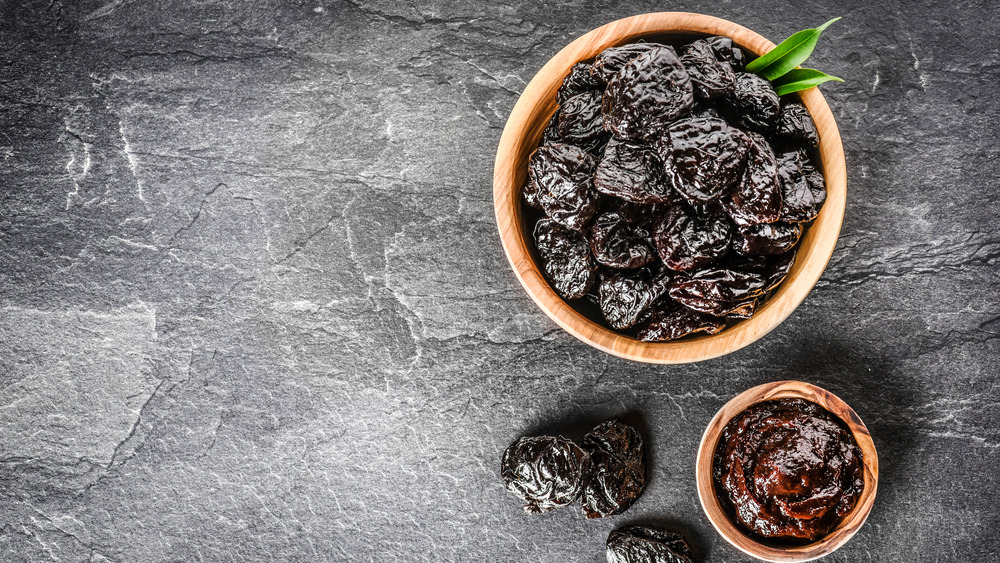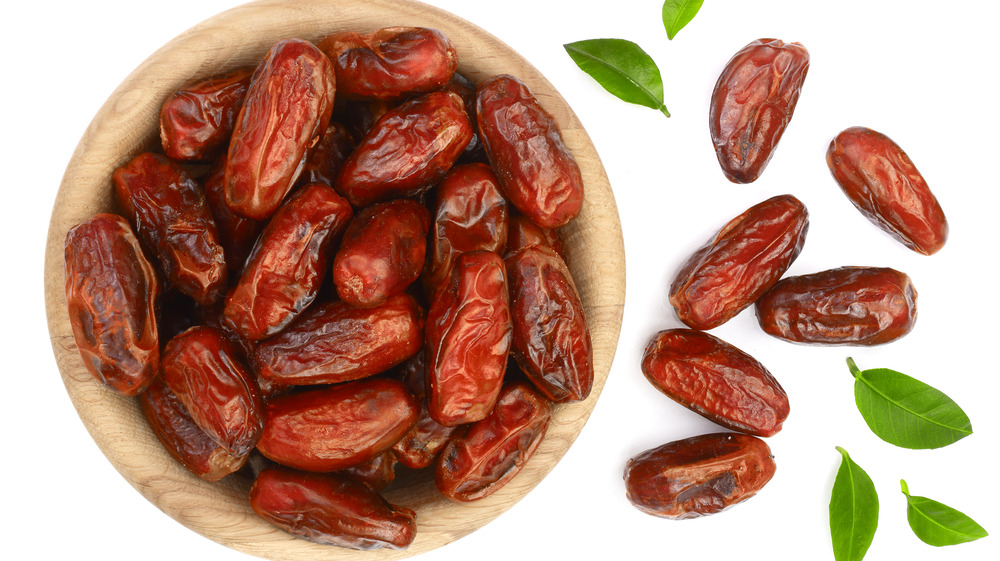How Are Prunes And Dates Different?
Both prunes and dates are dried fruits packed with many vitamins and minerals that make them a healthy snack. However, while they may look similar and have a similar texture, prunes and dates are a completely different fruit. Prunes are actually dried plums, while dates are their own separate fruit that grows fresh on the date palm tree in tropical areas, although they are almost always sold dried in the West, according to Healthline.
Most of the prunes that we consume in the States come from the La Petite d'Agen plum, which is grown in California, according to The Spruce Eats. Prunes taste similar to plums, with a pleasing sweet taste profile and a chewy texture. Prunes make a very healthy go-to snack. They are perhaps best known for aiding in the body's digestion, because they are high in fiber and have a high sorbitol content, according to Healthline.
But that's not all prunes are good for. They also boast high amounts of potassium, iron, and many key vitamins, minerals, and antioxidants, including vitamin K, vitamin A, vitamin B-6, riboflavin, niacin, manganese, copper, and magnesium. Eating prunes regularly has been shown to help lower cholesterol and blood pressure, and may even help protect against certain serious diseases such as COPD and colon cancer.
Dates are smaller and sweeter than prunes
Dates are distinguishable from prunes by their lighter golden color and oblong shape, compared to prunes, which are usually larger and a very dark, almost black, color. Dates are also sweeter than dried plums, and while both make great snacks on their own, dates are also a very popular ingredient in sweets and desserts, per The Spruce Eats.
Dates also pack a good deal of healthy fiber into each serving: about seven grams of fiber per 3.5 ounces, according to Healthline. The dried fruit also has higher antioxidant content than prunes, with large amounts of flavonoids, carotenoids, and phenolic acid, which can help protect against a number of serious diseases. Eating a diet high in these disease-fighting antioxidants has been linked to the reduced risk of heart disease, cancer, diabetes, Alzheimer's disease, and eye disorders. Dates also contain high levels of essential nutrients like potassium, magnesium, copper, manganese, and vitamin B6.
So while both dates and plums are sweet, healthy snacks, they are two different fruits with different flavor profiles. If you prefer to snack on candy-like fruits, then dates might be your go-to, but if you prefer something heartier and a little less sweet, you'll probably reach for a prune. But with their high levels of fiber, vitamins, and antioxidants, you can't go wrong with either one.

